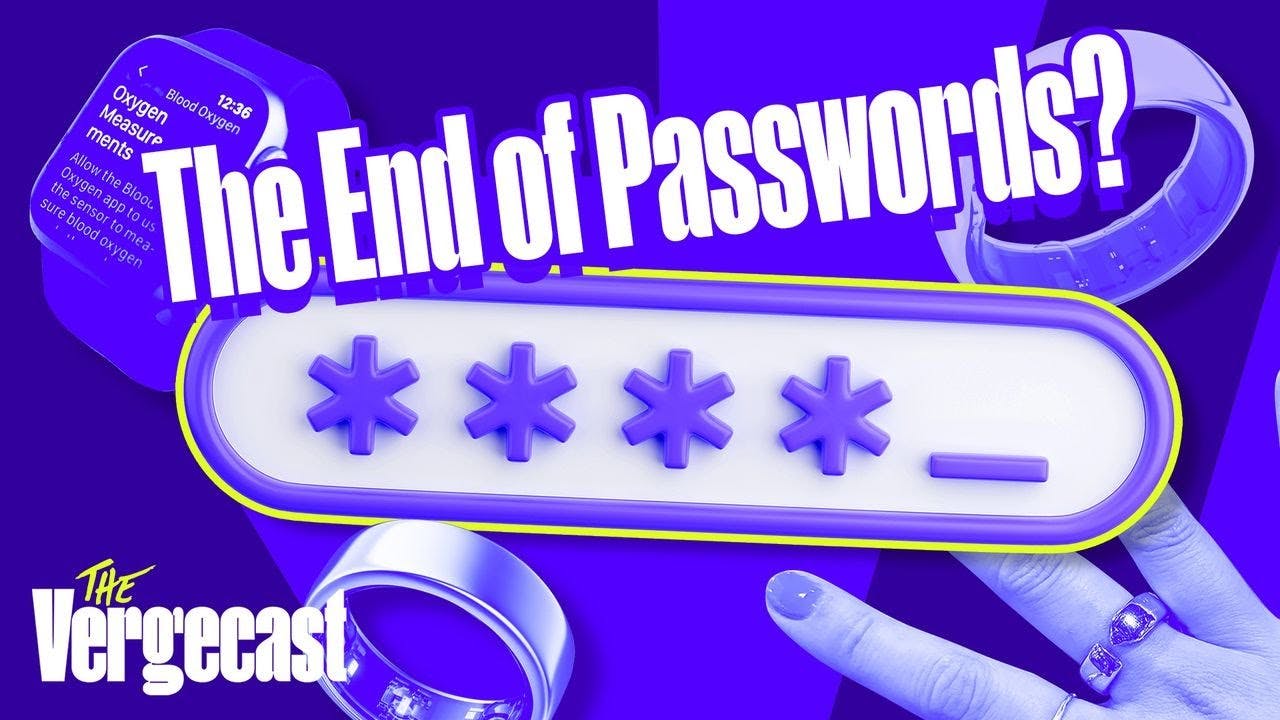Passkeys might really kill passwords | The Vergecast
13 Feb 2024 (almost 2 years ago)

Intro (0s)
- The Vergecast has moved from the Vergecast channel to the Verge's channel on YouTube.
- The Vergecast channel will be used for clips, extras, and possibly live content in the future.
- Listeners can still subscribe to the podcast on YouTube Music or through the podcast playlist.
- David Pierce acknowledges that some listeners may not be interested in seeing his face on the podcast and assures them that the audio-only format will remain the same.
- Passkeys are a new technology that aims to make online experiences easier, simpler, and more secure.
- David Pierce admits to not fully understanding passkeys and invites an expert to explain them.
- David Pierce expresses his dissatisfaction with the current state of wearable technology, particularly smartwatches.
- He feels that the promised revolution in wearable technology has not been realized.
Passkeys w/ 1Password's Anna Pobletts (1m54s)
- Passkeys are a new technology that replaces passwords with encrypted tokens on devices for authentication, offering better security and simplicity.
- Passkeys are gaining rapid adoption with support from major platforms like Google, Amazon, iOS, and Android.
- Passkeys eliminate the burden on users to maintain secure passwords by shifting the responsibility to the technology and leveraging familiar biometric authentication methods like Face ID and Touch ID.
- Passkeys are stored securely in the cloud, making them more convenient and user-friendly than traditional passwords, and are resistant to phishing attacks.
- Passkeys combine the "something you know" and "something you have" factors into a single, simplified experience, providing a higher level of security without compromising user experience.
- Passkeys can be recovered if the user has access to their platform account and can be stored in a cross-platform password manager like 1Password, which encrypts all data, including passkeys.
Wearables w/Victoria Song (30m57s)
- The smartwatch industry has boomed in recent years but seems to have stagnated, with smartwatches primarily serving as health devices rather than offering a wide range of computing capabilities.
- Fossil, a company that kept Wear OS afloat through its various sub-brands, has recently exited the smartwatch industry, leaving Google and Samsung as the dominant players in the Android smartwatch market.
- The initial vision of a wide spectrum of smartwatches with different styles and price points has not materialized, with the market now dominated by the Apple Watch, Galaxy Watch, and Pixel Watch.
- Wear OS 3 updates have been slow and inconsistent, with non-Samsung watches getting the short end of the stick, contributing to the decline of Wear OS smartwatches.
- The fitness band market seems to be shifting towards rings, with smart rings like the Oura ring gaining popularity due to their health advantages, such as ideal placement for sleep tracking, and unique benefits, despite their limitations.
- Health and fitness tracking is the most useful feature of smartwatches, but it's not the only reason to buy one, and the biggest obstacles to wearable adoption are behavioral changes and battery life.